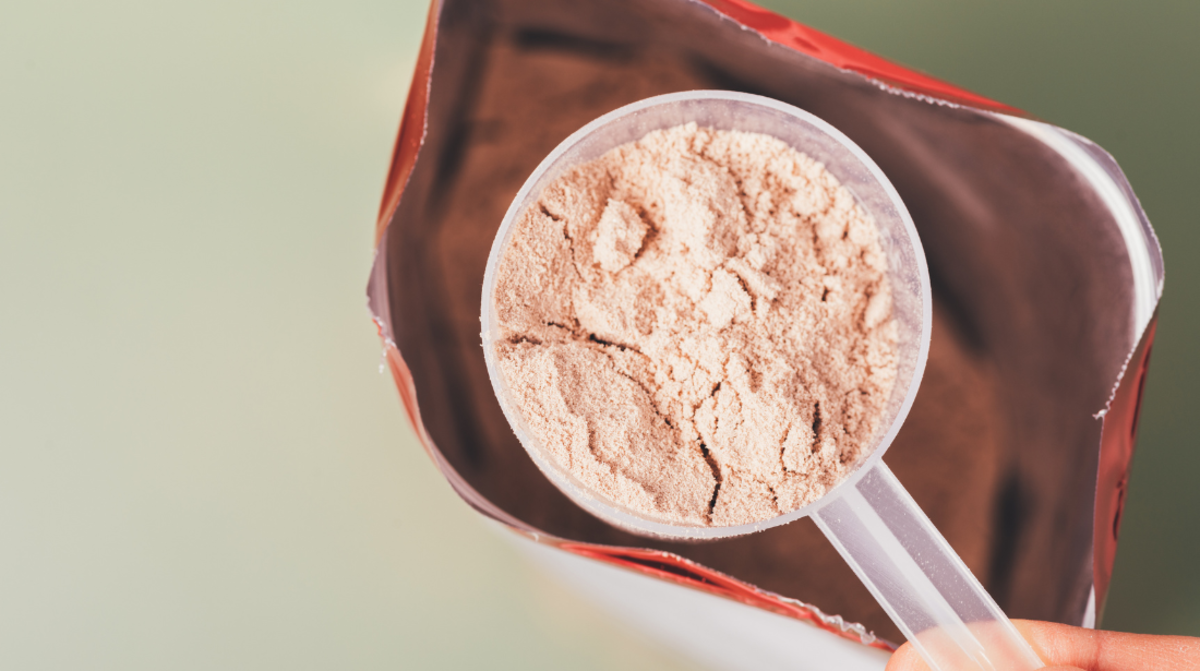Whey protein has become a staple supplement for anyone looking to build muscle, lose fat or simply meet higher protein needs. But when scanning the shelves, you’ll see multiple types of whey protein powders. The two main options are whey protein isolate (WPI) and whey protein concentrate (WPC). So, how do you choose between isolate vs concentrate? Let’s break it down.
Table of Contents
What is Whey Protein?
First, whey protein is a fast-digesting, complete protein derived from milk during the process of making cheese. The liquid part that separates from the curds is whey, and it’s purified and dried into a powder supplement.
Whey is rich in branched-chain amino acids like leucine that are key for building muscle. It also contains immune-boosting glutathione and is easily absorbable.
After a workout, whey is ideal for quickly replenishing depleted protein stores. It can also curb appetite between meals by regulating hormones that control hunger and fullness. This makes whey a useful supplement for weight management.
What’s the Difference Between Isolate and Concentrate?
The main difference lies in the purity and processing methods.
Whey protein concentrate contains around 70–80% protein by weight, with some lactose, fat and cholesterol. It undergoes limited filtration to remove non-protein components.
Whey isolate undergoes more extensive processing to “isolate” the protein by removing fat, cholesterol and extra carbohydrates. It contains 90% or higher protein by weight.
Isolate also goes through cross-flow microfiltration to yield higher concentrations of branched-chain amino acids, especially leucine. This makes it quicker absorbing.
Additionally, those who are lactose intolerant can often tolerate isolates better since more lactose is removed. Irrespectively of one’s preference, both are excellent sources of whey protein supplements.
Benefits of Whey Protein Isolate
Here are some of the top benefits of choosing an isolate:
– Absorbs Rapidly: Isolates digest quickly, with amino acids hitting the bloodstream within 15 minutes. This makes it ideal for post-workout recovery.
– Low in Fat & Carbs: With minimal fat, cholesterol and lactose, isolates work well for low-calorie diets and keto/low-carb lifestyles.
– Less Potential for Digestive Upset: The extra processing steps mean isolate is easier on sensitive stomachs.
– Versatile: Isolate dissolves easily into shakes or smoothies. It’s tasteless, so it can be added to recipes.
– Mixes Well: Because it’s rapidly absorbed, isolate combines well with slower proteins like casein to deliver sustained amino acids.
Potential Downsides of Whey Isolate
Despite the benefits, here are a few things to be aware of with whey isolates:
– Higher Cost: Due to intensive processing and higher protein content, isolates are typically more expensive per gram of protein than concentrates.
– Not Ideal for Bulking: For those eating in a large calorie surplus to maximize muscle growth, isolate may be overly satiating. Some prefer concentrate when bulking.
– Less Micronutrients: Processing can lower levels of bioactive compounds like lactoferrin and immunoglobulins that provide health benefits. However, the extent of this depends on the brand.
Benefits of Whey Protein Concentrate
Whey concentrate offers advantages including:
– Inexpensive: With less processing, concentrates are often half the cost per gram of protein compared to isolates. This makes it wallet-friendly.
– Natural Nutrients Retained: Less filtering means concentrates retain more naturally occurring bioactive compounds, like lactoferrin and immunoglobulins, that isolates strip away.
– Ideal for Bulking Diets: The additional carbs, fats and calories make concentrates a better choice for those bulking up on higher calorie intakes.
– Good for Baking: Concentrates perform and taste better in protein pancakes, muffins, breads and other baked goods.
Potential Downsides of Whey Concentrate
A few potential cons of whey concentrate:
– Slower Digesting: Containing less leucine and more lactose means concentrates don’t absorb quite as rapidly as isolates.
– Not Low Carb: Each serving provides a few more grams of carbs, so concentrates may not fit lower carb diets as well.
– Potential for Bloating: Some experience gas or bloating from the lactose and fat, although it varies individually. Isolate may be better for sensitive stomachs.
Which is Better: Whey Protein Isolate or Concentrate?
There’s no definitive answer – each type of whey has unique advantages that make it ideal for different goals:
Whey Protein Isolate May Be Best For:
– Post-Workout Recovery: The rapid amino acid delivery makes isolate ideal after training sessions.
– Weight Loss Diets: With minimal carbs and fat, isolates work well for fat loss.
– Low Carb/Keto Diets: Isolate fits better into low carb lifestyles, with less impact on blood sugar.
– Lactose Intolerance: The extra filtration generally means better tolerance in those sensitive to dairy sugars.
Whey Protein Concentrate May Be Preferable For:
– Muscle Bulking Diets: Added carbs, fat and calories prevent isolates from being overly filling.
– Cost Effectiveness: You can get more grams of protein for your dollar with concentrates.
– Adding to Recipes: Concentrates bake and taste better in protein muffins, breads and pancakes.
– Maximizing Micronutrients: Less processing retains higher levels of bioactives like immunoglobulins.
The Bottom Line
When choosing a whey protein, isolate and concentrate both offer unique advantages. Isolate works well for low carb diets and those wanting pure, fast-absorbing protein. Concentrate is ideal for bulking and baking and provides more micronutrients.
You can’t go wrong with either option. Try both and see which you prefer based on taste, cost, mixability and personal effects. Or alternate between them depending on your needs. Whey isolate and concentrate can both be excellent additions to a balanced, high protein diet.
Just be sure to choose a reputable brand that uses high-quality ingredients, proper processing methods and third-party testing. And, as always, consult your doctor before taking any new supplements, especially with any medical condition.


 Home
Home









